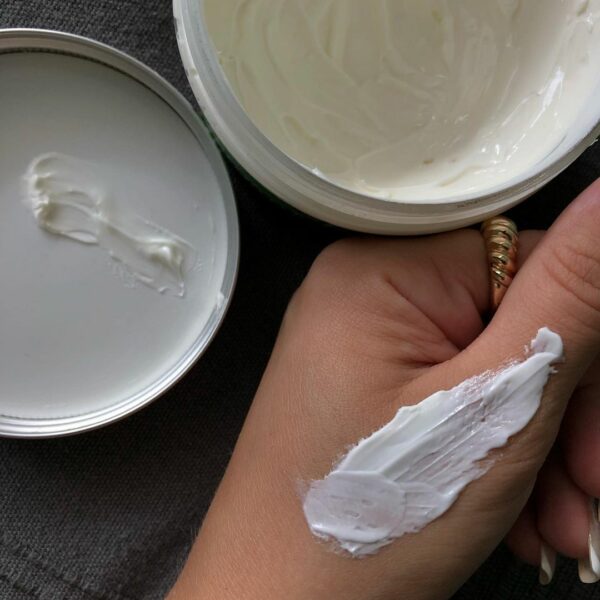Queue up some angry-girl music of the indie rock persuasion, because today, we’re diving into the topic of rage. In and of itself, anger is not bad. It’s how we respond to anger that can cause health issues.
To help break this down, we tapped Charlotte Melki, a therapist and life coach with a background in neuroscience and expert with Clementine, an app making cognitive hypnotherapy more accessible. (Our wellness editor is a fan of the “My f**ks are mine to give” meditation.)
Read on to learn how anger affects the body and how to deal with anger in a healthy way.
First of all, anger is not a bad thing.
“I often tell my clients that anger is our boundary guardian,” Melki says. “Women have been conditioned to believe that anger isn’t an emotion we are allowed to express. I think it’s time for us to reclaim this emotion that is as much ours as any other. Your anger is important, valid, vital.”
What happens when you feel angry?
“Anger activates the stress response: fight, flight, or freeze,” Melki explains. “When this happens, the blood in our brain goes from the analytical brain (front of the brain) to the reptilian brain (back of the brain), which is responsible for basic survival systems like movement, heartbeat, etc. This is an evolutionary response that is designed to promote survival in a life-threatening situation. No thinking is required—only action.”
Do you struggle to think and speak rationally when you’re angry?
“As the blood leaves our prefrontal cortex, which controls our speech, anger can cause us to be at a loss for words. “The stress response also triggers the release of acetylcholine, the neuromodulator of movement, which is why we are more likely to act when we are angry and feel that tremor of agitation when we cannot,” Melki explains.
What happens when you hold onto anger?
Holding onto our anger can look like persistent or explosive anger.
“Explosive rage is often, if not always, the result of suppressed anger. This means that persistent and explosive anger are two symptoms of the same behavior—holding on to our anger,” Melki explains.
“Holding onto anger means that the body is in a constant state of stress, as the stress response never completely shuts down. The stress response is not meant to stay on for long. When it does, the constant release of adrenaline in our body can negatively impact our sleep patterns, trigger anxiety, and even decrease the efficiency of our immune system,” Melki continues.
Anger can affect the body by:
-Interfering with sleep
-Triggering anxiety
-Weakening the immune system
-Increasing inflammation
-Spiking blood pressure and heart rate, increasing risk of heart disease
-Causing digestive issues like nausea, diarrhea, and constipation
“People who are prone to hold onto their anger are more likely to have poor sleep and be depressed, anxious, and physically ill,” she says.
So how can we handle our anger in a healthy way?
Melki shares that when we think about anger, we tend to think that there are just two options— express it right here and now or bury it. (The second one, btw, is the same as holding onto it.)
“What most people don’t realize is that we have access to a third option,” Melki states. “We can listen to it, learn from it, and take action. We cannot hate our way into loving ourselves, so the first part of dealing with anger is to learn how to listen to it,” Melki says. “When people think they need to deal with anger, they usually mean the loss of control rather than the anger itself. The loss of control, whether it’s expressed out loud or internalized, is what sends us spiraling.”
Instead of viewing anger as an external force beyond our control, we can use it to learn more about ourselves. Investigating exactly why we are angry helps us understand how we function and avoid the frustration of wondering why we behave a certain way.
What not to do: “Do not try to ‘manage’ your anger. This word has been wrongly used so many times when associated with that emotion,” Melki advises. “We wouldn’t ask you to manage your happiness or even your sadness. Don’t speak ill of your anger because when doing so, you automatically categorize anger as a negative part of you that you need to get rid of. And as we know, ‘what you resist persists, and what you embrace transforms.’”
What to do instead: “The golden question (taken from the amazing book, The Mind Monster Solution by Hazel Gale) you can ask yourself next time you feel angry that will allow you to regain control: ‘Can you do anything about this right now?’” Melki says.
“Losing control means losing the ability to choose,” she adds. “Choose your words, your actions, and how long you want to stay angry. To help with this, I have created the anger sessions available on the Clementine app. These are designed to help you navigate your anger, learn how to listen to it, use it, and let it go.”
Holding onto anger puts the body in a constant state of stress, which can cause health issues. Learn to listen to your anger, learn from it, and let it go.
Blueberry Calm Ade
Price: $15
Golde
The Human Being Journal
Price: $48
Mahara Mindfulness
Charlotte Melki is a qualified therapist and life coach with a background in neuroscience and 10 years of experience in the corporate world. Charlotte uses a mix of breakthrough techniques backed by the latest neuroscience research that have been adapted from NLP (Neuro-linguistic programming), cognitive hypnotherapy, and coaching. Thanks to her unique methods, she has helped people all over the world create a successful future that excites and inspires them.
The content provided in this article is provided for information purposes only and is not a substitute for professional advice and consultation, including professional medical advice and consultation; it is provided with the understanding that Poosh, LLC (“Poosh”) is not engaged in the provision or rendering of medical advice or services. The opinions and content included in the article are the views of the interviewee only, and Poosh does not endorse or recommend any such content or information, or any product or service mentioned in the article. You understand and agree that Poosh shall not be liable for any claim, loss, or damage arising out of the use of, or reliance upon any content or information in the article.
Up next, be the first to know our weekly content and sign up for our Poosh newsletter.





































